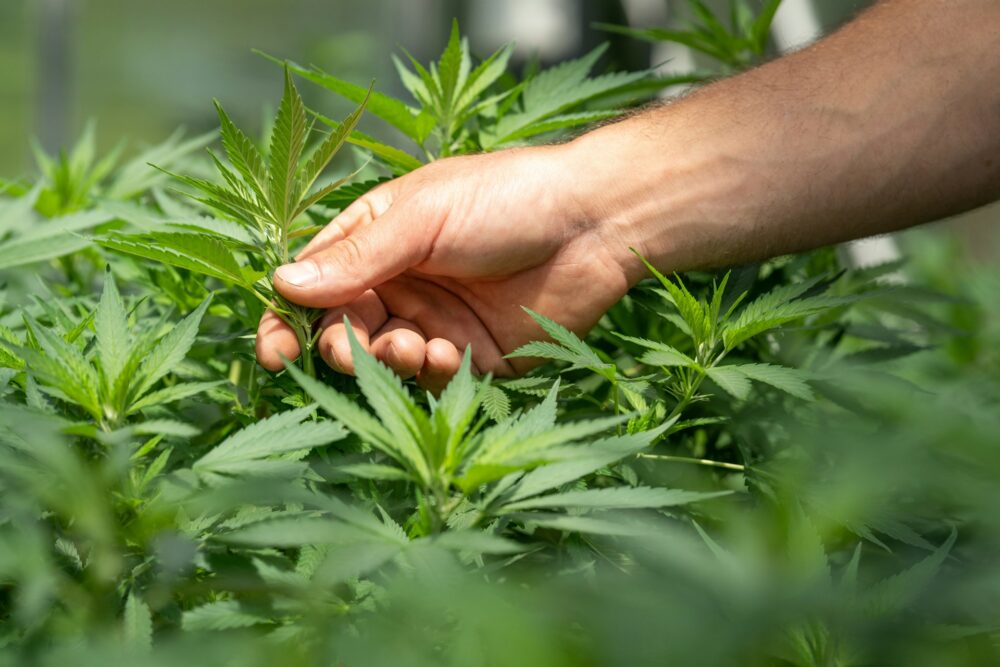Cannabis
The Czech Ministry of Justice Proposes Legalizing the Cultivation of 3 Cannabis Plants for Personal Use
The Czech Ministry of Justice proposes legalizing the cultivation of up to three cannabis plants for personal use, with possession limits of 50 grams at home and 25 grams outside. The amendment eases current laws, reducing penalties for possession and cultivation. This shift aligns with liberal trends in Europe, but concerns about increased use remain.

The Czech Ministry of Justice is making a bold proposal to legalize possession of up to three cannabis plants for personal use. The changes to the law could change the legal landscape regarding cannabis in the Czech Republic and further liberalize drug laws in Europe.
The Czech Ministry’s proposal to legalize cannabis cultivation is another step towards liberalizing the law on psychoactive substances. The Ministry of Justice has proposed that possession of three cannabis plants by people over 21 years of age should be legal and not subject to any legal penalties. This is a clear signal that the Czech Republic wants to change its approach to cannabis and adapt it to changing social attitudes.
Details of the Czech Ministry of Justice’s proposal
According to the proposed amendment to the penal regulations, the cultivation of up to three cannabis plants by adult citizens should not be punished as either an offence or a crime. These regulations would apply only to cultivation for personal use, without the intention of sale or distribution. Additionally, the amendment would introduce limits on the storage of dried herb: up to 50 grams at home and up to 25 grams outside the place of residence, reports the seznamzpravy.cz portal .
The proposal of the Czech Ministry would significantly relax the current laws, which currently make possession of larger amounts of cannabis (more than five plants) a criminal offence. In the new bill, the line between a misdemeanour and a crime has been moved, and people in possession of up to five cannabis plants would be treated more leniently.
The line between a misdemeanor and a crime
Under current law, possession of more than five cannabis plants or ten grams of dried cannabis can result in criminal charges. Possession of smaller amounts is a misdemeanour. The Czech Ministry of Justice has proposed changing these limits: five cannabis plants would be considered a misdemeanour, while possession of more than 100 grams of cannabis at home or 50 grams outside the home would still be considered a crime.
For those caught illegally growing or processing cannabis, a maximum penalty of six months’ imprisonment is foreseen. This is a much milder approach compared to the current regulations on other psychotropic substances, which the Czech Ministry justifies with international agreements and European Union regulations that recommend a more liberal treatment of cannabis.
Social changes and justification for the amendment
The Czech Ministry of Justice argues that the proposed change to the regulations is a response to changing social perceptions of recreational cannabis use. Cannabis, which for years was treated as a harmful and dangerous substance, is now increasingly accepted in society, especially when it comes to recreational use by adults.
The ministry emphasizes that some behaviors that have so far been treated as crimes should be reduced to misdemeanors or legalized altogether. This approach is in line with liberal trends in other European countries that are gradually easing cannabis laws.
Comparison with other countries
The Czech Republic is not alone in its efforts to legalize cannabis. More and more countries in Europe are deciding to liberalize cannabis laws. Germany is planning full legalization for adults, the Netherlands has for years allowed possession of small amounts of cannabis for personal use and is running pilot programs to legalize cannabis, and Portugal has decriminalized possession of small amounts of all drugs.
The Czech Ministry’s proposal is in line with these European trends, which are seeking a more lenient approach to cannabis in order to reduce the burden on courts and improve the effectiveness of the law.
Potential consequences of legalization
Legalizing the cultivation of up to three cannabis plants could have a number of consequences, both positive and negative. On the one hand, reducing the number of cannabis-related crimes could free up the judicial system and police, allowing them to focus on more serious crimes. On the other hand, opponents of legalization fear that relaxing the regulations could lead to an increase in cannabis use and, consequently, health and social problems.
There is also a risk that legalizing personal cultivation will not completely eliminate the black market, but will merely change its nature. Reducing criminal penalties could affect the perception of cannabis as a less dangerous substance, which could have both positive and negative effects.
Summary
The Czech Ministry of Justice’s proposal to legalize possession of up to three cannabis plants for personal use is a significant step towards liberalizing cannabis laws. This bold move could have an impact not only on the Czech Republic but also across Europe, inspiring other countries to rethink their approach to cannabis.
Legalization for personal use is not just a matter of law, but also of changing social values and the growing acceptance of cannabis as part of modern culture. Time will tell whether this change in the law will prove to be a step in the right direction, but it is already clear that the debate on legalizing cannabis in Europe is only just getting started.
__
(Featured image by CRYSTALWEED cannabis via Unsplash)
DISCLAIMER: This article was written by a third party contributor and does not reflect the opinion of Born2Invest, its management, staff or its associates. Please review our disclaimer for more information.
This article may include forward-looking statements. These forward-looking statements generally are identified by the words “believe,” “project,” “estimate,” “become,” “plan,” “will,” and similar expressions. These forward-looking statements involve known and unknown risks as well as uncertainties, including those discussed in the following cautionary statements and elsewhere in this article and on this site. Although the Company may believe that its expectations are based on reasonable assumptions, the actual results that the Company may achieve may differ materially from any forward-looking statements, which reflect the opinions of the management of the Company only as of the date hereof. Additionally, please make sure to read these important disclosures.
First published in FaktyKonopne. A third-party contributor translated and adapted the article from the original. In case of discrepancy, the original will prevail.
Although we made reasonable efforts to provide accurate translations, some parts may be incorrect. Born2Invest assumes no responsibility for errors, omissions or ambiguities in the translations provided on this website. Any person or entity relying on translated content does so at their own risk. Born2Invest is not responsible for losses caused by such reliance on the accuracy or reliability of translated information. If you wish to report an error or inaccuracy in the translation, we encourage you to contact us

-

 Cannabis5 days ago
Cannabis5 days agoCannabis and the Aging Brain: New Research Challenges Old Assumptions
-

 Africa2 weeks ago
Africa2 weeks agoUnemployment in Moroco Falls in 2025, but Underemployment and Youth Joblessness Rise
-

 Crowdfunding3 days ago
Crowdfunding3 days agoAWOL Vision’s Aetherion Projectors Raise Millions on Kickstarter
-

 Fintech1 week ago
Fintech1 week agoFintower Secures €1.5M Seed Funding to Transform Financial Planning

























